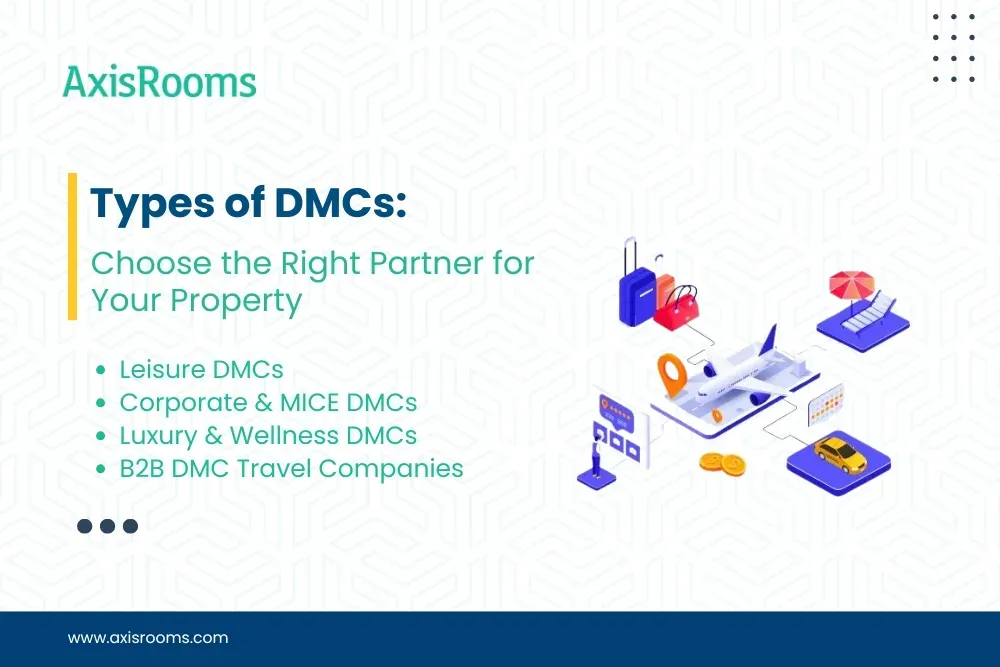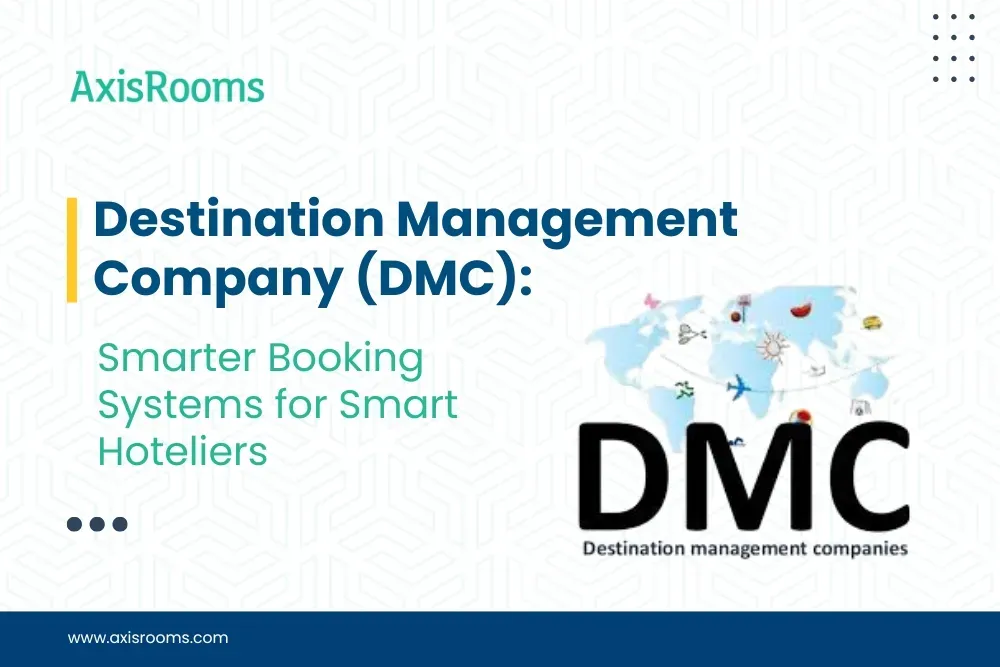Why Hoteliers Should Care About DMCs
If you're running a hotel in a destination market — whether it’s a beach town, cultural hub, or MICE hotspot — collaborating with a Destination Management Company (DMC) can bring immediate and long-term business benefits.
DMCs are strategic B2B partners who help you:
- Increase occupancy through pre-planned group and leisure bookings
- Improve guest satisfaction via curated travel experiences
- Reduce marketing costs by routing bookings through partner channels
- Streamline operations by pre-coordinating logistics and guest needs
Unlike OTAs, DMCs offer predictable demand and contract-based relationships, giving your hotel stronger revenue control and better planning power.
What Is a Destination Management Company?
A Destination Management Company (DMC) is a professional services company that offers planning, logistics, and execution of travel experiences for individuals or groups visiting a destination. These companies act as a one-stop solution for travel agents, corporates, and event organizers who require local support.
DMC full form: Destination Management Company
DMC meaning: In the hospitality context, a DMC is a B2B enabler that manages everything from airport pickups and hotel bookings to sightseeing, event planning, and local experiences.
For hotels, working with a DMC means tapping into their networks and expertise — resulting in more bookings and smoother guest operations.
Booking Hotel Reservations through a DMC
DMCs often work on a contract basis and book blocks of rooms months in advance. This gives your hotel:
- Forecastable revenue
- Lower cancellations due to pre-paid bookings
- No rate parity issues since pricing is pre-negotiated
- Simplified check-in/out workflows through shared guest lists and itineraries
🔹 How AxisRooms Supports DMC Partnerships
Core Services Offered by DMCs to Hotels
These services align directly with hotel operations, reducing your team’s workload and elevating the overall guest experience.
Types of DMCs: Choose the Right Partner for Your Property

- Leisure DMCs
- Focused on FITs, family vacations, and curated tourism itineraries
- Ideal for resorts, heritage hotels, and boutique stays
- Corporate & MICE DMCs
- Specialize in business travel, conferences, and incentive events
- Perfect for city hotels with event spaces and meeting rooms
- Luxury & Wellness DMCs
- Cater to high-end travelers seeking spa, wellness, and privacy
- Aligns well with upscale boutique hotels and wellness retreats
- B2B DMC Travel Companies
- Offer scalable, repeat group business to travel agencies and OTAs
- Key for hotel chains or multi-property operators
The DMC Market: What's Driving Global Growth?
The DMC travel sector is booming, fueled by:
- The return of international group travel
- Rising demand for sustainable and experiential tourism
- The “bleisure” trend — combining business with leisure
- Corporate offsites and destination weddings
Let's break down why these trends are a game-changer for hotels. In 2024, global tourism reached an impressive 1.4 billion international tourist arrivals, returning to pre-pandemic levels and demonstrating the resilience of the travel industry.
With the travel and tourism sector projected to grow at an annual rate of 5.8% through 2032 (outpacing the global economic growth rate of 2.7%), DMCs are positioned to capture significant business for their hotel partners.
For hoteliers, this translates into demand that’s organized, high-spending, and repeatable — especially if your property is located in a destination with cultural, natural, or business appeal.
DMCs vs OTAs: What’s the Difference?
Partnering with a DMC can help reduce OTA dependency while improving revenue control and guest experience alignment.
Hotel Website vs DMC Website: Distribution Synergy
Your hotel website is built for direct bookings — DMCs, meanwhile, operate curated DMC websites where they showcase destination packages, not just rooms.
When your property is featured as part of a broader travel itinerary on a DMC’s platform, it exposes you to audiences that would otherwise take longer — or cost more — to reach.
Tech Stack That Enables DMC Success
To support DMCs effectively, you need to:
- Share live availability and rates
- Automate reservation confirmations
- Prevent overbookings across group and retail channels
- Handle split inventory for different rate plans
AxisRooms’ Hotel Management Solutions are built to address exactly these needs — from Channel Manager and Rate Manager to Central Reservation System — making you DMC-ready from day one.
Final Thoughts: DMCs Aren’t Just a Trend — They’re a Growth Engine
In today’s fragmented travel market, hoteliers can’t afford to rely solely on OTAs or direct bookings. Destination Management Companies offer a stable, relationship-driven model that brings repeat group business, higher booking value, and operational alignment.
They fill your hotel when other channels can’t. They bring cultural experiences your staff may not know how to coordinate. And they help your property stand out in a sea of static listings.
With the right tech stack like AxisRooms, and a trusted DMC network in your region, your hotel can move from being listed — to being chosen.


